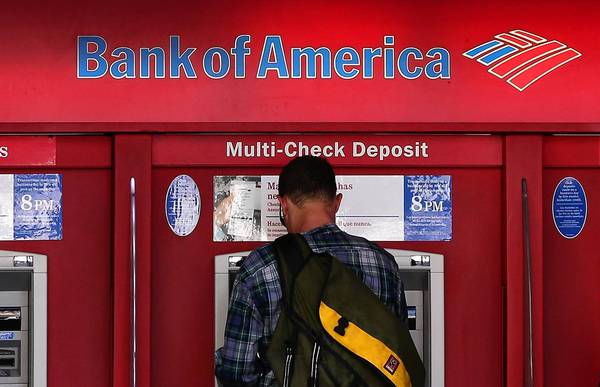
BLOG
Feds Sue BofA over 2008 Bonds Backed by Prime Jumbo Mortgages
The federal government is accusing Bank of America Corp.of securities fraud, saying the second-largest U.S. lender lied to investors about flaws in supposedly prime loans, including some resembling subprime "liar loans," when it sold $850 million in mortgage bonds in 2008.
Lawsuits filed by the U.S. Justice Department and Securities and Exchange Commission are the latest in a long string of government and private mortgage-related civil actions targeting banks. BofA has drawn a disproportionate number because of the liability it shouldered in 2008 when it acquired the enormous subprime lender Countrywide Financial Corp. of Calabasas.
The new DOJ and SEC suits, filed Tuesday, are the first such government suits not to involve Countrywide, instead accusing BofA itself of wrongdoing. In another unusual twist, they focus on jumbo mortgages -- the outsized home loans designed for wealthy borrowers.
The SEC said losses so far to investors in the mortgage-backed securities have totaled about $70 million and may eventually reach as high as $120 million. The investors included the Federal Home Loan Bank of San Francisco andWachovia Bank, the East Coast giant that nearly failed and now is part of Wells Fargo & Co.
A BofA statement blamed the housing market collapse for defaults in the pool of loans backing the bonds, and said they performed better than similar bundled loans from that era. The bank maintained that it would show the bonds were bought by "sophisticated investors who had ample access to the underlying data" -- but presumably didn't bother investigating.
The DOJ said BofA made most of the loans through mortgage brokers, not telling the investors that it had learned at the time that these loans were defaulting at a high rate. BofA no longer makes mortgages through third-party channels.
Despite the affluent clientele, about 15% of the mortgages resembled the subprime "liar loans" that led to so many defaults, the DOJ suit said. These "Paper Saver" loans were made to self-employed borrowers without bank verification of their income or assets, it said, accusing BofA of not disclosing the percentage of the loans made in this high-risk manner.
"As Defendants knew, mortgages given to self-employed borrowers were more risky than mortgages given to salaried borrowers and stated income/stated assets mortgages given to self-employed borrowers were even riskier," the lawsuit said.
The DOJ lawsuit alleged violations of a 1989 law that allows the government to seek hefty civil penalties. It says that in addition to other problems, BofA violated its own underwriting standards in issuing the loans and did not perform a due-diligence investigation at the loan level when it securitized them.
Source: LATimes By E. Scott Reckard August 6, 2013, 4:45 p.m.
Bank Faces Lawsuit Over Excessive Fees
Are you facing or someone you know facing foreclosure? There are sources out there to help you! Call me for a list of free resources! Laura Key 310.866.8422
JPMorgan Chase faces a lawsuit that alleges the bank imposed overly high or unnecessary fees on delinquent borrowers. The banking giant tried to get the case dismissed, arguing to the courts that the claims were unjust, but a federal judge ruled the lawsuit should proceed.
Borrowers are accusing the bank of “imposing excessive or unnecessary fees to inflate profit, including on services performed by third party vendors, cheating thousands of already-strained borrowers out of millions of dollars,” Reuters reports.
Among the fees in question range from $95 to $125 for “broker’s price opinions.” The plaintiffs, who reside in Tennessee, California, and Oregon, claim that the BPOs cost $30 to produce and that according to Fannie Mae guidelines they should not cost more than $80.
Similar lawsuits over mortgage fees charged to delinquent borrowers are pending against Wells Fargo and Citigroup.
Source: “JPMorgan must face lawsuit challenging mortgage fees,” Reuters (June 14, 2013)

